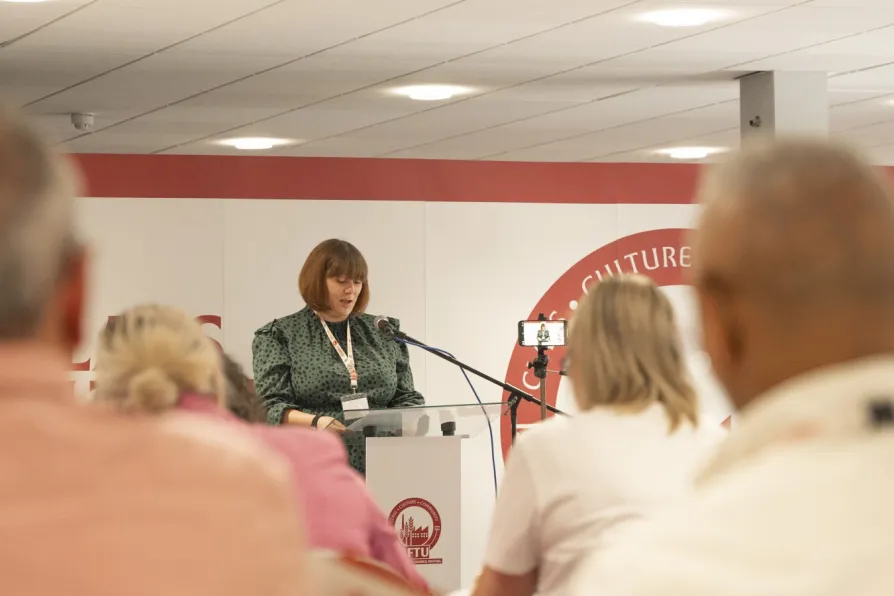
 Sarah Woolley addresses the GFTU Conference. Photo: Khatun & Will Killington
Sarah Woolley addresses the GFTU Conference. Photo: Khatun & Will Killington
CLASS, culture and community are the themes of this year’s biennial General Federation of Trade Unions (GFTU) conference.
GFTU president Sarah Woolley told delegates the interaction between the three was fundamental to trade unionism, which matters “because when working-class people organise, we move from being a category to being a force … that can demand fair pay, safe workplaces, public services, and dignity.”
Class consciousness “finds its soul” in working-class culture, she argued, as “trade unionism is not just about wages and conditions — it’s about how we live, how we think, how we imagine the future … from banners and ballads to poetry and protest.”
Trade union education was “how we turn members into activists, activists into leaders and leaders into visionaries” and the GFTU’s expanding education programme was at the forefront of this work nationally, Ms Woolley stressed, part of rebuilding a bigger, class conscious movement in which “trade unions are anchors of community power, cultural life, and democratic renewal.”













